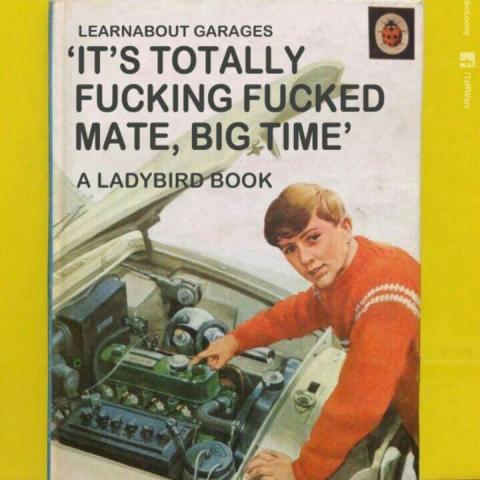RCR boss attacks London boaters
February 2017 - Peter Underwood looks at attacks on London boaters by a canal business and local people.
A diatribe by Stephanie Horton, the boss of River Canal Rescue (RCR), which offers a mobile repair service for boaters and an angry letter from a resident of trendy Islington shows some of the pressures now being experienced by London's liveaboard boaters.
Stephanie Horton decided to jump on the bandwagon of claims by some locals that London’s infrastructure was unable to cope with the increasing number of people living on boats.
It seems she is concerned that her firm, River Canal Rescue (RCR) is getting a 'high level of call-outs ... to attend poorly-maintained boats with faults not covered by membership fees'.
Of course, the RCR business model, like those of the AA and RAC, depends on lots of people paying to be able to call them and as few as possible actually doing so.
“The standard and condition of boats in this area is causing frustration for our engineers and owners who assume they won’t face any additional repair or equipment costs once they’ve paid their yearly subscription,” says managing director, Stephanie Horton.
“The vessels have had negligible maintenance or if work has been undertaken, there are so many modifications, repairs are likely to be expensive.
“We are expected to undertake all repairs or do a ‘quick patch-up’ job but this is not always possible, as it depends on how many systems – ie fuel, cooling, drive or water – are affected.”
RCR claims 'the explosion in live-boards' is putting pressure on its business.
Stephanie continues: “Each of our five engineers serving London has to attend some 300 call-outs per year, which is a high proportion for such a small area. After analysing the mileage, fuel, parking costs and exorbitant fines when they run over, congestion charges and the number of repeat call-outs, we are considering how to best to meet the challenges presented by this community.”
She goes on to complain that continuously cruising boats that have move every two weeks mean there are 'pressures to complete quickly' on her engineers. A curious complaint when most boaters would want an emergency call out service to go to wherever their boat is moored and fix it well within two weeks.
She also complains that 'many boaters have never owned a car so are unfamiliar with even basic engine workings,' and that 'the number of forums and lack of qualified engineers in London causes people to try cheap solutions that often result in more expensive repairs.'
She is not keen on customers expressing an opinion either, complaining that 'diagnosis and work is often questioned with engineers being told ‘xxx said the equipment should be like this’
Stephanie ends with a threat to treat London boaters less favourably than those in the rest of the country: “We are currently investigating a series of solutions for London-based boaters which we hope will reduce the number of call-outs and costs associated with attending poorly-maintained vessels, this may involve inspecting boats before we agree membership cover levels or a surcharge for callouts within the M25 ring. By exploring the options, we can better protect our wider-based membership against the impact of spiralling costs.”
The locals are also restless and one inveterate letter writer has complained to the Islington Tribune that her canalside walk was ruined by choking fumes from boats.
Meg Howarth, who regularly appears in newspaper letters columns, wrote to the 'paper saying her walk along the canal: “...was ruined by diesel and wood-burning fumes – from the popular but polluting Word on the Water bookboat (apparently Stephen Fry is an admirer) as far as the tunnel.”
She went on to claim a worker in hi-vis told her 'the emissions were choking him'.
Meg asks: “So what are Islington Council and the Canal and River Trust (CRT) doing with the funds granted them last summer by Defra (the government’s Department for Environment, Food and Rural Affairs) to install electric charging-points at the borough’s moorings?
“Are they squabbling among themselves – the CRT is responsible for the waterway and towpaths, the council for the public health of its residents?”
Sue acknowledges: “Though electricity supply would reduce diesel and generator usage, it seems it won’t help with heating – the biggest source of pollution from stationary boats – as most barges aren’t equipped to use the points.”
She suggests: “Splitting the grant between installing charging bollards and upgrading the boats where necessary is, therefore, the obvious way ahead.”
Despite all that Sue seems to believe 'most of the moorings in Islington are residential' and welcomes them as a cheap form of housing – she just doesn't want them to have fires or run their engines.
Photo: Probably the same diagnosis on most call outs.






